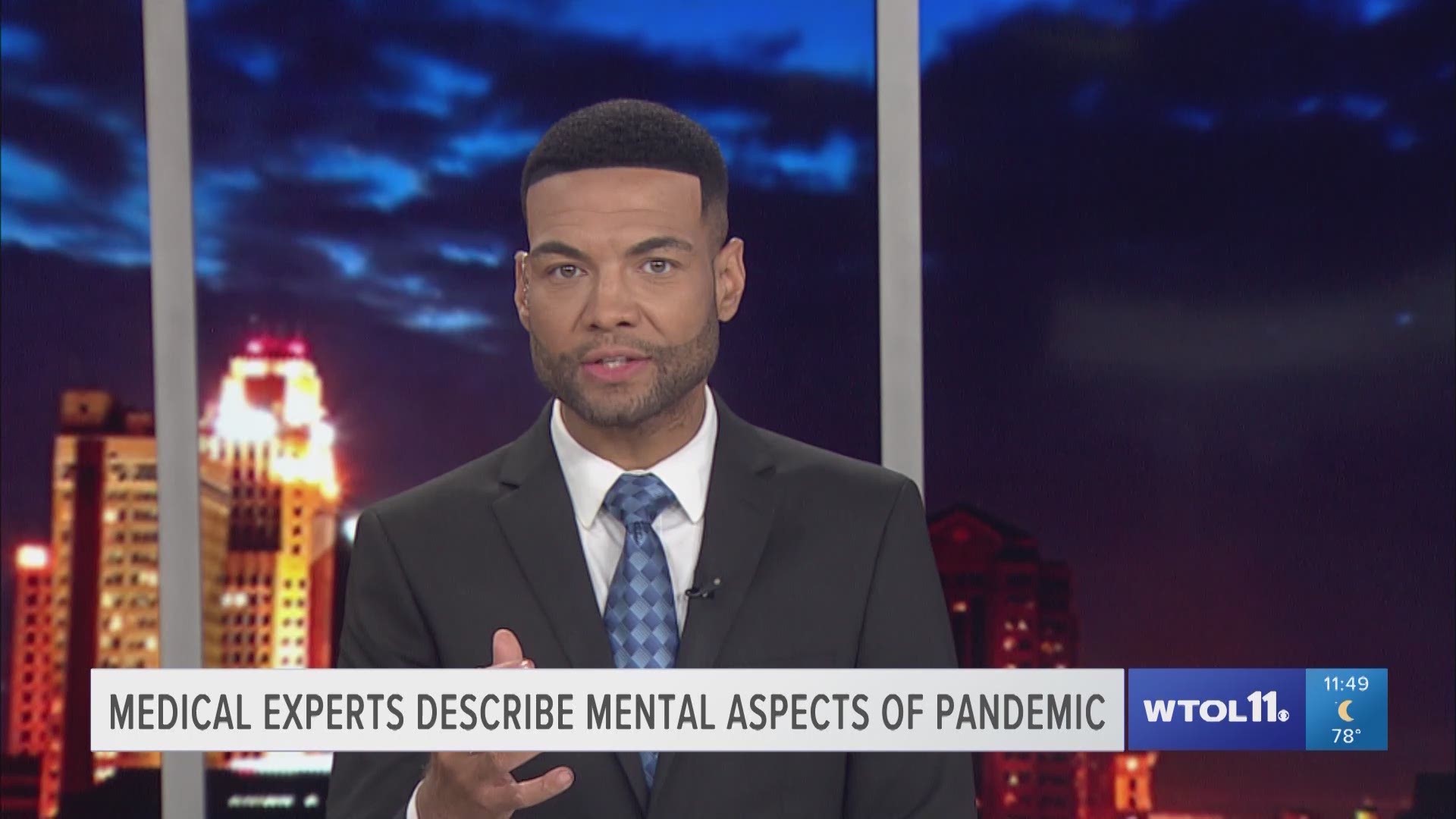TOLEDO, Ohio — Medical experts are seeing several side effects from the pandemic, with some including an increase in anxiety and stress.
Dr. Victoria Kelly, the Vice-Chair of Education for the Department of Psychiatry at the University of Toledo, said these issues can lead to changed behavior, and you should address it if it starts affecting your life.
"Everybody is anxious and you know this high level of alert that we live on, it's very stressful to our body," Kelly said.
Viewers in our area chimed in on social media, describing their experience of far.
"I have had some anxiety, but mostly due to choosing to take care of my kids while trying to keep my full-time job," said Andrea Harris.
"Anxiety has increased for a few at our house; being home and not socializing is stressful," added Annette Allen.
Kelly said some of these feelings are normal for what is happening in the world. However, it can become a problem if you start noticing changes in your behavior.
"A lot of times people may throw around the word, 'Oh, I'm a little OCD or something like that.' But in actuality, obsessive-compulsive disorder is a pretty chronic and potentially debilitating disease," Kelly said.
Kelly described OCD as an obsession paired with a compulsion that can be a physical or mental behavior; right now, the most popular one being a contamination obsession.
But how do you know when it's time to reach out for help?
"If you're not able to have the functioning in your life that you need to. Definitely one of the aspects to consider is: are you doing this behavior because of a health or hygiene reason or is there this urge and impulse to just do it," Kelly said.
Also, it may be time to seek help if these actions are consuming more than an hour of your day.
Since the pandemic isn't going away anytime soon, Dr. K. Luan Phan with Ohio State University's Wexner Medical Center said you should try to focus more on the positive and less on the negative.
"Begin to try to talk yourself out of this sense of doom that you are not going to die that the symptoms will pass," Phan said.
"Reach out to your friends, family, supported loved ones, the rest of your treatment team so that you can come up with a good strategy," added Kelly.
For more help with OCD, you can visit the International OCD Foundation or the Mental Health America.
The National Suicide Prevention Lifeline is 1-800-273-8255.

